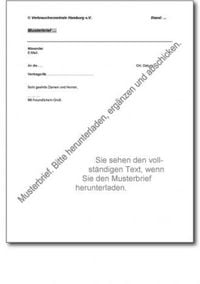On April 15, 2025, the Verbraucherzentrale Hamburg announced a significant court ruling against the energy provider Voxenergie, prohibiting the company from pressuring consumers by referencing Schufa in their payment requests. The Landgericht Berlin II deemed such tactics as unfair and inadmissible, marking a notable victory for consumer protection advocates.
The controversy began when Voxenergie demanded a payment of 190.39 euros from a customer for what they claimed was an outstanding contract. In their communication, the company presented a "special offer" that not only reduced the outstanding amount but also the fees charged by the collection agency. However, the letter concluded with a stern warning: "We will hand over the unpaid amount to Schufa," a powerful credit reporting agency in Germany.
Julia Rehberg from the Verbraucherzentrale Hamburg expressed her concerns about Voxenergie's approach. "The Schufa is a strong pressure tool, often even when a claim is not justified," she explained. This tactic, she noted, exploits consumers' fears about negative credit entries, which can severely affect their ability to secure loans or housing.
The Verbraucherzentrale Hamburg took action by filing a lawsuit against Voxenergie, arguing that the company's threats were not only aggressive but also misleading. The court sided with the consumer advocates, issuing a default judgment against Voxenergie, which prohibits the company from sending letters that include such Schufa references.
This ruling is significant as it highlights the ongoing struggle between consumers and companies that leverage fear as a tactic in debt collection. The court's decision sends a clear message that using Schufa as a threat in payment requests is unacceptable and can lead to severe penalties.
In the event that Voxenergie violates the court's ruling, the company could face a hefty fine of up to 250,000 euros. This ruling serves as a crucial step towards safeguarding consumer rights in Germany, particularly in the energy sector, where many companies have been known to employ similar tactics.
Consumer protection organizations have long warned about the aggressive methods used by some companies when it comes to debt collection. The fear of a negative Schufa entry can lead consumers to pay debts quickly, even when the claims may not be valid. This ruling is expected to deter other companies from using similar pressure tactics.
As the court proceedings unfolded, it became clear that the issue at hand was not just about a single payment request but rather about the broader implications of consumer rights in Germany. The decision by the Landgericht Berlin II is a landmark ruling that emphasizes the importance of fair treatment of consumers.
Voxenergie's practices were scrutinized under the lens of consumer protection laws, which are designed to shield individuals from unfair business practices. The court's judgment underscores the need for companies to engage in ethical communication with their customers, particularly when financial matters are involved.
The ruling has garnered attention not only from consumer advocates but also from the general public, who are increasingly aware of their rights in the face of aggressive debt collection practices. As more consumers become informed about these issues, companies may need to rethink their strategies to avoid legal repercussions.
In conclusion, the Landgericht Berlin II's decision against Voxenergie marks a pivotal moment in the fight for consumer rights in Germany. It serves as a reminder that businesses must conduct themselves with integrity and respect towards their customers, particularly in sensitive areas involving financial obligations.






